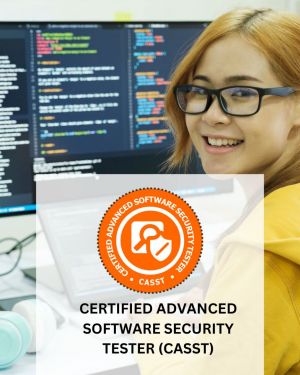The Certified Business Analyst (CBA)™ – Foundation certification equips professionals with the knowledge and tools to analyze and document business needs effectively. Business Analysts serve as a crucial link between business operations and IT development, translating requirements into actionable solutions that drive business change and value.
This certification provides a comprehensive introduction to business analysis concepts, tools, techniques, and the evolution of the field—ideal for those stepping into or enhancing their role in business analysis.
Why Business Analysis?
Business Analysis emerged to address the growing complexity and failure of IT projects starting in the 1980s. Today, it’s a vital discipline in modern organizations, ensuring successful implementation of business and technology solutions.
According to reports:
- Business Analyst roles are among the top future-ready jobs
- 37% of Business Analysts use dedicated requirement tools
- The discipline continues to evolve with business needs and technology advancements
E-Course Features
- Duration: 10 to 15 Hours
- Access: Online, self-paced through an eLearning portal
- Includes:
- Study guide eBook
- Interactive modules
- Lifetime validity upon certification
Exam Details
- Total Questions: 50 Multiple Choice
- Passing Score: 80% (40 correct answers)
- Exam Duration: 60 Minutes
- Format: Online, non-proctored
- Validity: Exam must be taken within 8 months of voucher activation
- Pre-requisite: Must have the Certified Change Manager – Foundation Level certification
Voucher & Attempt Policy
- Exam voucher includes 2 attempts
- If passed on first attempt, second attempt becomes invalid
- After 2 failed attempts, you must purchase a new voucher
Certification Validity
The CBA™ – Foundation Certificate is valid for life.
Course Outline
Module 1 – Introduction to Business Process Analysis
- Purpose of Business Analysis
- Role & responsibilities of a Business Analyst
- Key concepts and domain knowledge
Module 2 – Planning & Stakeholder Management
- BPA activity planning
- Stakeholder identification & communication
- RASCI matrix and performance monitoring
Module 3 – Requirements Management
- Requirement elicitation, prioritization, and communication
- Managing and organizing business requirements
Module 4 – Organizational Analysis
- Risk & root cause analysis
- SWOT, GAQP, and decision strategies
Module 5 – Solution Evaluation & Implementation
- Solution validation, assessment, and implementation
- Metrics for success and ongoing evaluation
Module 6 – Business Analyst Competencies
- Communication, leadership, conflict & supplier management
Target Audience
Ideal for professionals such as:
- Business Analysts
- System Analysts
- Requirements Engineers
- Product Owners & Managers








